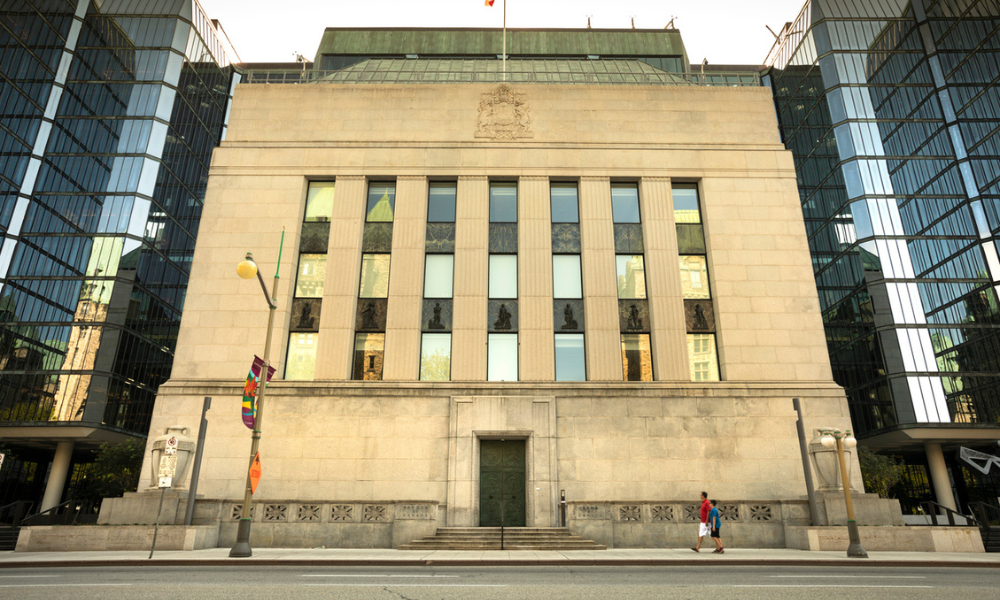TD Bank remains cautious while peers expect 50-point reduction

Five of Canada's biggest banks are now expecting a larger-than-usual interest rate cut from the Bank of Canada after inflation numbers came in lower than anticipated.
With inflation dropping below the central bank’s 2% target for the first time in over three years, most major lenders have forecasted a 50-basis-point cut in borrowing costs next week.
The shift in forecasts from major banks like Bank of Nova Scotia, Bank of Montreal, National Bank of Canada, Royal Bank of Canada, and Canadian Imperial Bank of Commerce reflects mounting concern that the Bank of Canada may need to act more aggressively to support the economy.
Earlier predictions had leaned toward a 25-basis-point cut, but with economic growth slowing and inflation undershooting expectations, many lenders now see a larger cut as likely.
Toronto-Dominion Bank (TD), on the other hand, held back from joining the majority in predicting a sharp rate cut, viewing the chances of either a 25- or 50-basis-points cut as a coin flip.
Currently, the BoC's overnight rate sits at 4.25%. The central bank is set to announce its decision on October 23.
Bank of Canada Governor Tiff Macklem had previously indicated that a faster pace of rate cuts could be on the table if inflation and economic activity slowed more than expected. With inflation now averaging just 2% annually in the third quarter, lower than the 2.3% forecast in July, and economic growth lagging, those conditions appear to be materializing.
While Canada’s unemployment rate fell to 6.5% in September, the labour market has weakened as job creation has struggled to keep pace with the country’s rapid population growth.
Former deputy governor Paul Beaudry recently weighed in, noting that the conditions for a larger rate cut are already in place. He said he wouldn’t be surprised by the outsized cut in October given the economy's current trajectory.
Citigroup was one of the first institutions to forecast a 50 basis-point cut back in August, when economists Veronica Clark and Gisela Hoxha made their early prediction.
Read next: Could the Bank of Canada start cutting rates more aggressively?
Despite the growing consensus among banks, the Bank of Canada has largely refrained from signalling a need for quicker monetary easing. Senior deputy governor Carolyn Rogers has emphasized the need to see more progress in reducing core inflation, which remained at 2.35% in September, just slightly above the central bank’s 2% target.
Make sure to get all the latest news to your inbox on Canada’s mortgage and housing markets by signing up for our free daily newsletter here.



